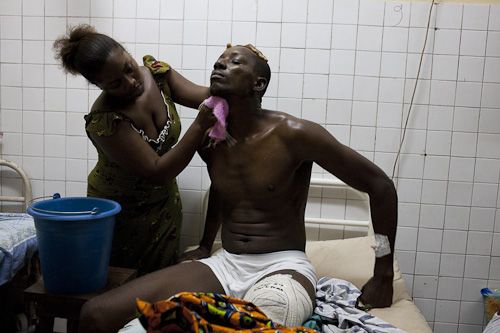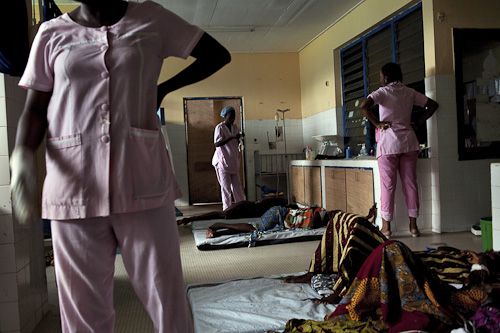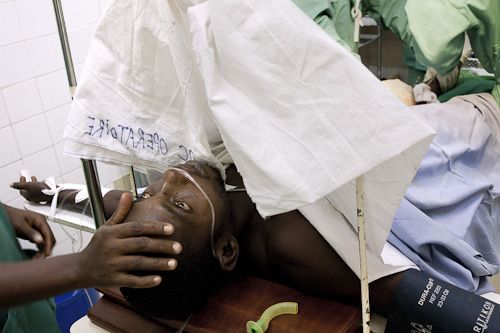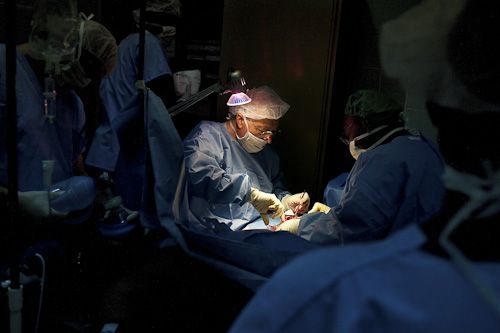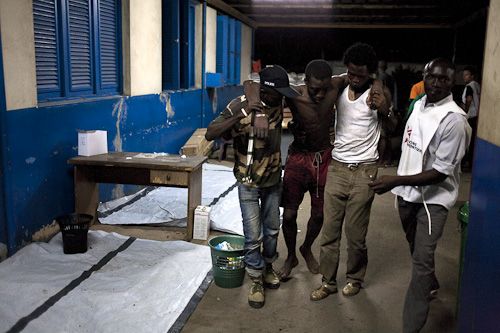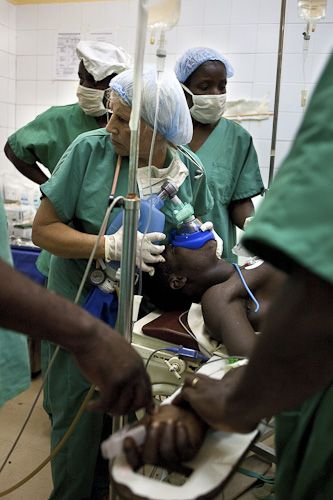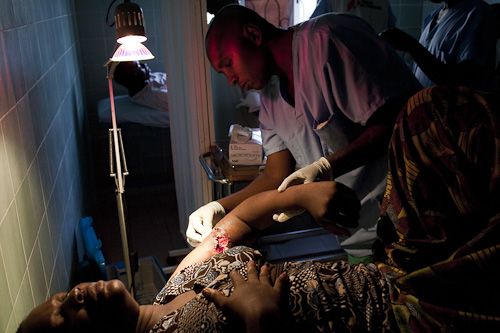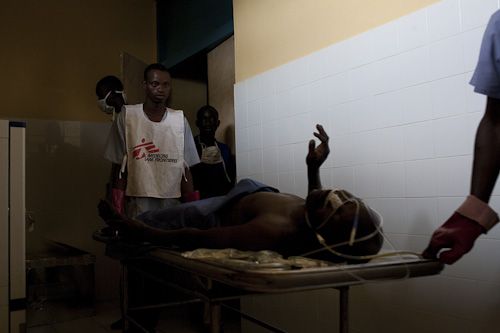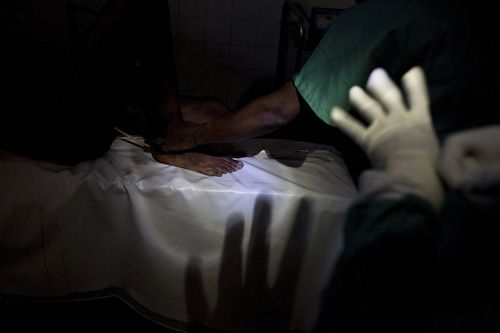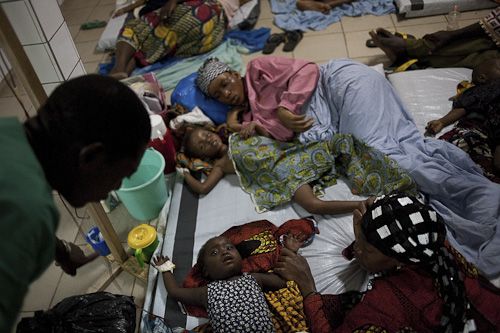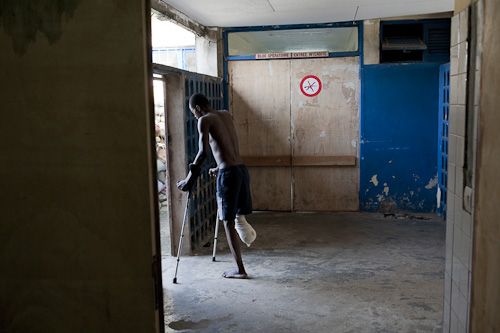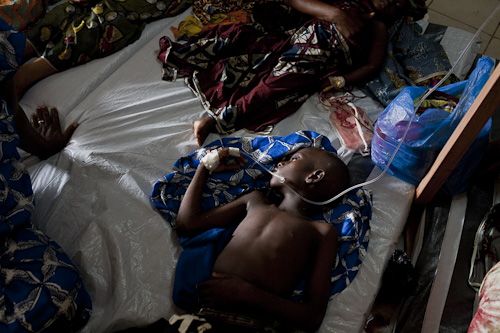May 20, 2011 | Pulitzer Center
From mid-March to mid-April, post-election violence in Ivory Coast reached a boiling point in Abidjan as forces loyal to presidential challenger Alassane Ouattara made a final siege on the city. During most of this time, civilians were unable to leave their homes. Medical treatment was unavailable not only for conflict-related injuries, but also for basic health care needs. Immediately after former president Laurent Gbagbo was arrested and relative stability returned to the city, hospitals were inundated with patients whose prolonged lack of medical care turned normal problems into dire emergencies.
